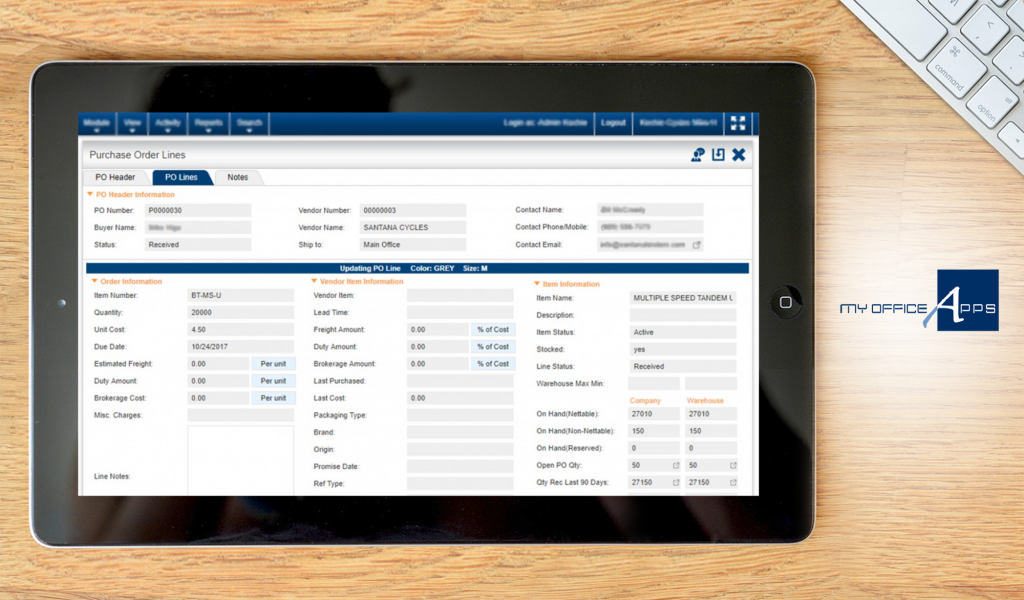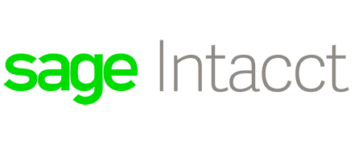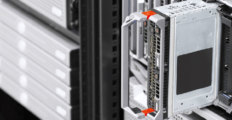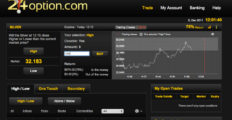In the manufacturing industry, it is very hard to get by without the use of digital tools. There are too many processes to track and doing it all using Excel sheets is very troublesome. As complexity increases, tracking and managing a large organization using legacy software methods become virtually intractable. Thus, many successful businesses choose to have a single hub for everything—from production to warehousing and recruitment to sales. So, many businesses shop for the best ERP software for manufacturing today.
If you are in the same boat as them, you have come to the right place. In this article, we will list and review the best ERP software solutions for manufacturing businesses. We will not only write down their features but also some use cases and useful integrations.

What are the 20 best ERP software for manufacturing?
In the United States, ERP software usage has become more popular through the years if we are to base popularity on market revenue. The total revenue in 2016 was $14.5 billion. In 2021, this reached $17.5 billion. That is a 20.69% growth in five years. Also, this is no surprise as a considerable 44.8% are either very satisfied or satisfied with their ERP vendors while 34.2% are neutral.
It seems that the primary reason for this uptick is that most companies want to either shift away from their legacy platforms (32.3%) or upgrade their reimplementation (35.5%). This, however, is not only in the ERP software segment alone as recent digital transformation statistics will show.
Source: Panorama Consulting, 2021
In general, the already huge enterprise software market is still growing. In 2020, the market’s revenue reached $205 billion worldwide. Experts predict that in 2026, the figure will reach $348 billion. That is a 69.8% increase in just five years with a CAGR of +9.2%. And, a good chunk of the entire market is the ERP subsegment accounting for 19% of the total revenue in 2020 and a projected 18% of the pie in 2026.
So, in order to stay competitive and optimize operations, it is best for enterprise-level companies to see what all the ERP software rave is all about. According to recent ERP software statistics, about 50% of companies are already implementing ERP solutions. Now, let’s take a look at the best erp software for manufacturing.
Top ERP Software for Manufacturing
1. Netsuite ERP

Netsuite ERP from Oracle is one of the popular and best ERP software tools out in the market today. In fact, the company owns a 12% worldwide market share for the ERP software category. This is because it is a comprehensive suite of modules that, on their own, can rival standalone specialized software products.
Modules include those for supply change management, order management, financials, global teams management, marketing, CRM, commerce, and support. It is also a very scalable solution that can be deployed according to a business’s needs. Feature sets can be highly customized and can be scaled up or down according to how your business goes.
Moreover, the platform is global-ready. Meaning, it can be configured to accommodate particular regional operations. It also has a wide range of language support from Chinese to Turkish. And, it has a multi-currency capability for truly international bookkeeping.
So, if you have multiple plants and factories spread across different regions with a diverse set of clientele and suppliers, Netsuite ERP is a good product to consider adopting. Moreover, it integrates with other popular products on your current web investments and third-party solutions like Epay and Dell Boomi.
Price Range: Netsuite ERP’s deployment is customized according to an organization’s aims and structure. Thus, it is available via quote-based plans. It is also being used by different businesses of different sizes, from SMEs to large enterprises.
Detailed NetSuite ERP Review
Why choose NetSuite ERP?
- Complete Suite. The product is essentially a suite of software tools that can take care of virtually every facet of a manufacturing business. It connects once disparate functions like inventory management and financial accounting to provide a 360-degree view of your operations.
- Great Commerce Tools. Whether you are in the B2B or B2C market, Netsuite allows you to easily grow and expand your sales through any channel. Once you create a sales item on your internal sales orders, you can set the product suite to instantly publish this on your website and with total control over promotions and pricing.
- Global Ready. Through NetSuite’s OneWorld solution, you can easily manage operations across regions and with different currencies, compliance requirements, and local taxation. Your global operations can stay relevant at multiple local levels at the same time.
2. Wrike

Wrike is an advanced online project management tool designed to facilitate collaboration and communication among people in the same workplaces and with remote teams. Because of the adaptability of this tool, people from a wide variety of backgrounds can collaborate effectively in a single setting. Using the service requires only a few mouse clicks to facilitate real-time task prioritization, ranking, tracking, and discussion.
Numerous Fortune 500 companies, such as Google, Adobe, and EA Sports, use Wrike. According to reviews, Wrike’s security features are top-notch. You can rest assured that only authorized users will have access to the data and files stored in your online repository.
You can customize project views to include the status of individual tasks plus time-stamped updates and visual representations of data with Wrike. Its @mention function allows you to alert your team so they don’t miss out on tasks. This tool also helps keep track of your emails, which you can turn into tasks.
Wrike supports nine different languages and is compatible with the vast majority of business-to-business applications, including Google Drive, Box, Dropbox, Salesforce.com, and Slack.
Price Range: Wrike offers a free plan. But for more robust features, consider any of its three paid plans starting at $9.80 per user per month. For enterprise pricing, request a quote from the vendor.
Detailed Wrike Review
Why choose Wrike?
- 3-Panel Project View. See all the details and operations of a project on one screen. The left pane lets you switch between projects or work on small tasks. Project tasks are in the middle pane, while task details are on the right.
- Tags and Folders. Name folders based on how the data is organized, and put tasks in different folders without duplication. You organize data by tasks, projects, or other categories.
- Activity Stream. See the order of all team activities. Your team can keep an eye on each other’s progress and use @mention to call attention to certain problems. Recipients are automatically marked as task discussion followers and get Stream notifications.
3. Rossum

Rossum is perfect for document-based operations. And, most manufacturing businesses are so. From procurement orders to sales contracts, Rossum can collect and manage these documents in the way you desire. Meaning, you can set up a document-based workflow that can cover your bases from financials to hiring.
Using a state-of-the-art cognitive data capture process, it uses advanced machine learning to quickly scan, collect, and validate data from documents. Also, this feature is available on mobile for faster data collection even on the go. Furthermore, its validation engine is also trainable through user feedback. It prompts users to check data and fields with low confidence scores and learn from these behaviors so it can automate similar processes in the future.
Key features include a single document gateway, cognitive data capture, instant transaction updates, intelligent document curation, audit trails, and powerful analytics. Moreover, the product is really customizable for any type of organization. And, for manufacturing businesses that rely heavily on documents processing, Rossum is the dark horse of ERP platforms.
Rossum also integrates with other business solutions, including Zoho Books, Sage Intacct, and Oracle Netsuite.
Price Range: As Rossum is highly customizable, it is only available via a personalized quote-based plan. The software provider also offers a free trial period so you can try the product for yourself.
Detailed Rossum Review
Why choose Rossum?
- Document-Based Operations. If your company runs highly on document-based transactions, then Rossum could be the best fit for you. Because of its customizable and AI-driven workflow automation, you can easily configure it to become the control center for your operations. Its data capture feature is also great for digital migration and transformation.
- Automated End-to-End Communication. Rossum is not just a document management software. It is a unique document-based ERP platform that incorporates end-to-end communication all throughout its workflow. It notifies senders of the status of transactions and data issues. And, through its integrations, it can fit perfectly with previous software stacks and digital architecture.
- Robust Analytics and Reporting. The product does not only have intelligent data capture and matching features. It also has smart reporting tools housed in intuitive dashboards. These include those for usage and compliance.
4. Method CRM

Method:CRM is definitely more than what its name suggests. This QuickBooks-based solution is both powerful and flexible for any type of business. One of its most popular uses is in manufacturing. This is because the product is highly customizable. Users can create necessary modules useful in the industry, from inventory management to interaction tracking.
Key customizable features include transaction templates, a commission tracker, and online document approval. You can even customize screens, reports, charts, and graphs. Moreover, personalizing Method:CRM is very easy. This is thanks to its drag-and-drop interface, instantly giving it high out-of-the-box usability.
Of course, it has robust CRM features for any enterprise. These features can not only be used for tracking and nurturing relations with clients and suppliers but also with employees. Thus, it can also cater to enterprise HR needs.
Lastly, the web-based platform does not only integrate well with QuickBooks. It also works great with other solutions, including Gmail, Mailchimp, Outlook, PayPal, Zapier, and Google Calendar.
Price Range: Method:CRM is offered via two pricing plans. These are contact management, which costs $28 per user monthly and CRM Pro priced at $49 per user per month.
Detailed Method:CRM Review
Why choose Method:CRM?
- QuickBooks Integration. If you are a QuickBooks users, Method:CRM is a good candidate to extend your QuickBooks functionalities. The product is made specifically to integrate with QuickBooks and is highly customizable according to your current and desired workflows.
- Easily Customizable. There is not a single highly-useful, one-size-fits-all software anymore. In order to have a high out-of-the-box functionality, a product needs to be highly customizable. And, there are just a few other products out there that are as configurable as Method:CRM for QuickBooks with its easy-to-use drag-and-drop tools.
- High-Quality CRM. Of course, as the name suggests, the product has a great CRM module that can be used for managing relationships with clients, suppliers, and even employees.
5. Sage Intacct

Sage Intacct is an ERP and cloud financial management solution. It is being used by many types of businesses of all scales from all industries including manufacturing. The product includes many automation tools to manage core financial operations. Thus, users can not only minimize human errors but also have time to focus on the softer aspects of operations.
Key features include modules for inventory management, depreciation tracking, business activity statements, accounts receivables, accounts payables, general ledger, and automated journal entries. Moreover, Sage Intacct has a partnership with MISys Manufacturing. So, you can avail of manufacturing-specific features to improve schedule purchasing, inventory control, and track product costs.
Moreover, Sage Intacct also integrates with products like Salesforce, Development Sandbox, and Clarizen, among other tools.
Price Range: Sage Intacct is deployed customized to your needs. So, it is only available via a quote-based plan.
Detailed Sage Intacct Review
Why choose Sage Intacct?
- Easy Financial Management. Sage Intacct is prized for its core financial tools with a wide range of accounting capabilities important to the manufacturing industry. Moreover, with creative multicurrency management tools, international manufacturing businesses can truly have multiregional support.
- Advanced Analytics and Reporting. On top of native report templates, the product allows users to customize their analytics and reporting tools to peer through their valuable data and easily generate actionable insights.
- Security and User Limitations. Sage is known for its high-security features that guard against viruses and hackers. Sage Intacct also offers access control features for profiles to limit each person’s access to the software’s actions and features.
6. SYSPRO

SYSPRO is another popular ERP software used in the manufacturing industry. It can be deployed via cloud or installed on-premise. It has features for inventory management, warehouse automation, inventory control, forecasting, general ledger, project accounting, and document management, among many others.
Moreover, it integrates well with SYSPRO’s own Manufacturing Operations Management (MOM) platform. With this, users get access to more advanced manufacturing-specific features such as modules for manufacturing lifecycle, advanced planning and scheduling, shop floor data collection and tracking, and factory performance analysis and loss management.
Furthermore, with the product, users can connect machines and digitize their factories. This is done by embedding interactive technology in their key machines. So, users can proceed with their Industry 4.0 journeys with ease.
Other integrations include those for Microsoft Office 365 and Web EDI.
Price Range: SYSPRO offers a customizable plan via a personalized quote.
Detailed SYSPRO Review
Why choose SYSPRO?
- Manufacturing-Specific Features. Through its Manufacturing Operations Management (MOM) software, users can take advantage of industry-specific features to increase productivity and lower production costs. These include management alerts, issue logging, and workflow tracking.
- Smart Factory. SYSPRO can install interactive technology in key machines in users’ factories. Thus, users can have a real-time view of each machine’s activity and connect them to a digital web for better 360-degree management.
- Highly-Scalable. The product is very agile and can grow with you as you ramp up your operations or lean it out. Moreover, thanks to its machine learning and AI capabilities, you get real-time access to data to improve your business decisions. In other words, you get access to algorithms for growth.
7. Tipalti

Tipalti is a billing and invoicing software with end-to-end accounts payable solutions used in the manufacturing and wholesale industry. It is prized for its ability to dynamically process invoices using two-way or three-way purchase order (PO) matching.
Key features include affiliate payments processing, customer and vendor payment processing, tax form compliance, invoicing, global payment processing, payment currency selection, reconciliation, and fraud detection. The product also offers deep financial controls for better customization, security, and goal setting.
With automation tools in these modules and self-service onboarding features, users can easily eliminate 80% of their manual processes. Of course, necessary failsafe components are also included, ensuring that invoices are approved by the right people.
The Tipalti web-based platform also integrates seamlessly with QuickBooks, Sage, and LinkTrust, among others.
Price Range: The product is offered via a quote-based plan. You can easily contact the vendor for your custom pricing details.
Detailed Tipalti Review
Why choose Tipalti?
- Comprehensive and Secure Payables Features. Manufacturing companies enjoy Tipalti’s comprehensive payment-related features, taking into account tax compliance aspects. Moreover, The solution verifies payment details using over 26,000 rules. So, you can rest assured that your transactions are secure.
- Global Payments. Tipalti supports 120 currencies and six payment methods, including PayPal, Wire, and Global ACH, among others. Also, it allows users to make and receive payments from 190 countries. Of course, these features come with deep financial controls for security, including payment threshold setting and signatory rights.
- Advanced Financial Reporting. Naturally, with its advanced financial management features, the product also offers automatic report generation features, including those for payment reconciliation and taxation data.
8. Odoo

Odoo is another highly-customizable ERP software solution with robust CRM capabilities. It provides manufacturing companies with an all-in-one suite, including modules for real-time communication and shop floor automation capabilities. The latter allows users to capture data from their various equipment using its API.
Key features include modules for routings, worksheets, versioning, planning, control panel, work orders, procurement, supply chain rules, and maintenance, among others. Moreover, the platform gives users access to out-of-the-box community apps and customizability options to truly create a software solution just for you.
The product also includes integrations with Microsoft Office 365, Magento, and WooCommerce, among others. Also, there are mobile versions of Odoo for mobile devices.
Price Range: Odoo ERP is priced at $6 per month per user. Custom apps on Odoo are also available via custom pricing.
Detailed Odoo Review
Why choose Odoo?
- All-in-One Solution. The platform is not just highly-customizable but it also offers various apps for different business processes. Also, you can build your own apps. Examples of available apps and apps you can create include an ecommerce portal, a website creator, inventory management, and many more.
- Flexible Pricing. Odoo is offered at a base price of $6 per month per user. And, the platform only charges you for the additional applications that you need. So, you only pay for what applications you want to extend its basic capabilities that are also very powerful in and of themselves.
- Open-Source. For users with capable IT teams, they can extend the default customizability that Odoo offers by taking advantage of its open-source architecture. They can use this to create their own applications or create custom dashboards for advanced analytics and many more.
9. Oracle ERP

Oracle ERP is one of the top ERP platforms used by businesses across different industries. In both manufacturing and warehousing industries, it is a powerful solution because of its comprehensive features.
These include features for financial planning and analysis, procurement, risk management, compliance and governance, inventory and supply chain management, and revenue recognition.
It also has a Manufacturing Cloud module for manufacturing industry-specific features. This is used by manufacturing businesses to streamline their processes using features such as back-to-back flushed transactions, cost controls, and easy-to-understand visualizations. Also, it includes social collaboration capabilities to keep processes cohesive.
Integrations are also available. However, you have to contact the vendor for your specific integration needs.
Price Range: Oracle ERP is offered via three plans. Its Financial Reporting Compliance plan is priced at $175 per user per month. If you upgrade to its Advanced Financial Controls version, it will cost you $80 per month per user. Its Advanced Access Controls package costs $150 per user monthly.
Detailed Oracle ERP Cloud Review
Why choose Oracle ERP?
- Financial Reporting. Oracle’s Financial Cloud module is a scalable all-inclusive financial management system complete with advanced reporting capabilities based on an analytic data model. It’s used for both internal and external reporting.
- Self-Service. Its Procurement Cloud module allows for fast and flexible contract billing. Moreover, its supplier portal can help users collaborate easily with suppliers to select the best products, policies, and manage risks.
- Streamlined Payment. Thanks to Oracle’s ERP secure payment automation features, companies can rest assured that every financial transaction gets done on time. With this, users can easily manage risks and plan their finances.
10. Scoro

Scoro is a web-based work management software solution with a wide variety of applications in different industries. It is valued for providing users with a central hub for all their operational needs. The platform can connect once disparate departments and functions through its blend of collaboration tools. Thus, if you are in the manufacturing industry, you can easily connect your back-end processes like creating quotes and managing tasks to front-end functions like CRM.
Key features include modules for project management, calendar management, task management, quote management, resource planning, and comparative reports. There are also features for scheduled invoicing, late invoice reminders, and a commission calculator. Moreover, its social collaboration tools include comments sections and file sharing modules.
Aside from its native features, Scoro also integrates with other business solutions to extend its capabilities. Integrations include those with Xero, Dropbox, Zapier, and QuickBooks. Moreover, Scoro has mobile applications both for Android and iOS devices.
Price Range: The software provider offers a free trial so you can check out all the features without any commitment. There are four premium plans available. Its Essentials package costs $25 per user per month while its Standard plan is priced at $37 per user per month. Its Pro plan is pegged at $63 per user monthly while its Ultimate plan is only available by a personalized quote.
Detailed Scoro Review
Why choose Scoro?
- Integrated Project Management. Have all information and communication across projects and departments in one place. Scoro’s project management module and social collaboration tools will help users stay on the same page within their departments and with the direction of the company as a whole.
- Easy-to-Use. Scoro has a great intuitive user interface holding more than its 100 features. It does not only provide a clean look but also an up-to-date dashboard to access real-time data on the progress and status of tasks and projects.
- Real-Time Gantt Chart. For Gantt Chart lovers, Scoro provides you with a real-time Gantt Chart dashboard. This is complete with dependencies, events, progress, and automations. With this, you can free up time for manual updates and minimize human errors in progress reporting.
11. Kechie

Kechie is a cloud-based ERP platform with robust Materials Requirements Planning (MRP) features making it a go-to platform for manufacturing businesses. Also, it is known for its deep inventory management capabilities as well. These tools help with better scheduling, capacity planning, optimization, cost efficiency, and elimination of excess inventory.
Other key features include modules for financial management, procurement, lot tracking, bin location, barcode integration, transfer order, job order tracking, and shipping and receiving. Moreover, it is fitted with reporting and analytics tools, including those for sales data and customer trends. Thus, it can help users make data-driven decisions throughout their manufacturing processes and more.
The product integrates well with other tools, including popular ones like Salesforce, QuickBooks, and Shopify.
Price Range: Kechie, like many top ERP applications, is deployed according to your business’s needs. This is why it is only offered via a quote-based plan.
Detailed Kechie Review
Why choose Kechie?
- Materials Requirements Planning. Kechie has a module built especially for manufacturers. Its MRP module is useful in production management, thanks to features for scheduling, optimization, cost control, and visibility.
- Logistics. Its Logistics module helps users optimize fulfillment processes. Its feature set includes bar code integration, automatic packing slip and invoice generation, and expiration date tracking. Also, for field and lot personnel, it is accessible via mobile and handheld screens.
- Multi-Warehouse Management. Kechie has multi-warehouse support. Thus, it is a good candidate for ERP software for manufacturers with multiple factory locations across the country or the world. With this, inventory and fulfillment processes across different locations will be highly visible and easily manageable.
12. Sage Business Cloud Enterprise Management

Sage Business Cloud Enterprise Management is the complete ERP package from the software provider. It sports modules for warehousing, logistics, document management, business intelligence, and manufacturing. Moreover, other key features include those for CRM, HR, sales, ecommerce, and payment processing.
Moreover, the product is deployed according to the particular needs of a company. And, users can customize features to suit industry-specific needs. Also, with its high-customizability rating, it can be used by manufacturing businesses of all sizes, from small operations to large enterprises.
The product is also mobile-optimized so users can access the system whether they are out on the field or on the factory floor. Also, the product integrates with other solutions like Symphony eCommerce, Edisoft, and Process Weaver.
Price Range: As the product is deployed customized according to a particular business’s operations, Sage Business Cloud Enterprise Management is only offered via a custom quote-based plan.
Detailed Sage Business Cloud Enterprise Management Review
Why choose Sage Business Cloud Enterprise Management?
- All-in-One Suite. Sage Business Cloud Enterprise Management is a complete ERP suite with robust modules for manufacturing, warehousing, logistics, CRM, HR, and payment processing, among others.
- Simplified Project Management. Its project management feature is very easy to use. Social collaboration tools come together with dashboards for easy project and budget tracking.
- Warehouse and Inventory Management. Being a complete suite, users have their manufacturing management features connected to inventory and warehouse management modules. In this way, users have a seamless view of these complementary business functions. There is no need for another business solution to clutter up your workflow.
13. Epicor ERP

Epicor ERP is an ERP software made specifically for medium- to enterprise-sized businesses in manufacturing, retail, and distribution. It has over 40 years of experience in delivering industry-specific business solutions. It actively incorporates new technologies, including the use of IoT, analytics, mobility, and big data to provide its clientele with smart manufacturing support.
Moreover, like other go-to ERP solutions, it offers a good CRM module to help users nurture and grow their relationships with clients and suppliers. Key product features include planning and scheduling, project management, performance management, financial management, production management, and service management.
It also provides users with an easy-to-use supply management module with complete governance, risk, and compliance features. Furthermore, it has mobile applications for both Android and iOS devices.
Lastly, it integrates with more than 1,000 endpoint applications, including Salesforce, eBay, Twitter, and QuickBooks.
Price Range: The core product starts at $175 per user per month. Additional modules and integrations may have additional costs. Please contact the vendor for more information.
Detailed Epicor ERP Review
Why choose Epicor ERP?
- Modular. Get only the modules you need from Epicor. Many times, customers get more than what they need from one-size-fits-all software offerings. With Epicor, you get to choose what module goes with what, according to your specific needs and desired workflow.
- Seasoned Support. Epicor is proud of its client support service record. It offers a comprehensive knowledge center for self-paced learning and also gets users connected to helpful service professionals. Moreover, it has an active user base with digital conferences, webcasts, and events to learn from and share best practices with.
- Enterprise Content Management. The product allows you to manage your company’s documents and streamline your useful content for internal and external use. It also has useful automation tools, including advanced print routing.
14. SAP ERP

SAP ERP is one of the most popular ERP software solutions in the market today. This is because it brings the complete package, including key modules for financial management, CRM, lifecycle management, human capital management, and supply chain management. Other important features include workflows like Procure to Pay, Plan to Product, Order to Cash, and Request to Service.
All of these are housed in an intuitive and easy-to-use interface contributing to an excellent usability rating from its customers. Moreover, it is valued for its Core Finance module as well. It has robust accounting features that can help you consolidate all your organization’s financial information into a simple general ledger. Of course, this is rounded out by customizable reporting and analytics tools.
The platform is best used with other SAP products, such as Talent Management, HCM Analytics, and SAP Hybrid Cloud for Sales. Moreover, the company also offers the SAP Integration Suite that you can use to make SAP work seamlessly with other products through AI-enabled integration and other methods.
Price Range: The product is only available via custom quotes. Contact the software provider for more information.
Detailed SAP ERP Review
Why choose SAP ERP?
- SAP Power Users. If you are a SAP user already, then SAP ERP is probably the best ERP software to use as it seamlessly integrates with your current software architecture. Because of this native integration, you can rest assured that all your data, information, and processes will easily translate with your new SAP stack.
- One-Stop-Shop. The software provider offers complete business applications for any type of business. So, when you are a SAP user, you get easy access to different modules, software, and services that you can mix and match according to your needs. Of course, SAP also offers stellar customer support to help you on your way to creating your own SAP product stack.
- Plan to Product. This workflow, among others, helps you connect core processes and competencies together within a single digital control room. For manufacturers, the Plan to Product workflow module helps them link production schedules with order processing and even back-end processes like procurement. It is easily scalable, too, and is being used by companies of all sizes. Moreover, thanks to its analytics capabilities and dashboards, you can make data-driven decisions better.
15. FinancialForce ERP

FinancialForce ERP is a flexible solution that is best known for its core financial tools, real-time reporting, and customizability. Other core features useful in the manufacturing industry include order management, revenue recognition, ERP, HCM, accounting, billing, and inventory management.
These are rounded out by robust modules for analytics and reporting, multi-location support, and CRM. Moreover, the web-based solution is also mobile-ready. So, you can access it on your factory floors or in the field.
Furthermore, its fit for the manufacturing industry can further be tightened with its integration with Rootstock and other applications like Salesforce. This is through FinancialForce’s Professional Services Automation (PSA), which unifies different functions such as sales, finances, and delivery in one single command center.
Price Range: FinancialForce ERP is only available via a quote-based plan. Please contact the software provider to get your personalized quote.
Detailed FinancialForce ERP Review
Why choose FinancialForce ERP?
- Centralized Salesforce Platform. Have a single source for truth to simplify audits and compliance. Provide key personnel with visibility and boost collaboration while eliminating errors.
- Real-Time Financials. FinancialForce ERP’s financial reporting has advanced and real-time modeling and financial analysis capabilities. It has automations for forecasting earnings from multiple revenue streams. Moreover, the module includes support for subscriptions and usage-based contracts.
- Integrations. The product seamlessly integrates with many different apps to extend its capabilities. It also complements and supercharges platforms like Salesforce CRM.
16. SAP Business One

SAP Business One is another product from leading software provider, SAP. It is an ERP software solution that is also very popular among manufacturers. It has modules for sales quotes and orders, inventory management, bills of materials, production orders, accounting, purchasing, materials resources planning (MRP), and capacity planning.
These features also integrate with other useful modules for warehouse management, production management, and CRM. Thus, SAP Business One is a well-rounded ERP solution that is designed for manufacturing businesses of any size. Also, it is scalable as you grow.
Moreover, the application has mobile versions for Android and iOS users. Furthermore, it integrates best with other SAP products and can seamlessly work with solutions such as Dell Boomi, MuleSoft, Hybris Cloud, and HANA Cloud.
Price Range: SAP Business One is deployed according to your particular needs. So, it is only offered via personalized custom quotes.
Detailed SAP Business One Review
Why choose SAP Business One?
- Scalability. The product is designed not just for large manufacturing enterprises but also for smaller manufacturers. It is also very flexible in terms of scalability. Meaning, the product can grow with your business.
- CRM. SAP Business One includes a good CRM package with lead generation and nurturing capabilities. Moreover, the module is also very flexible and can be used to manage internal human capital as well.
- Automations. The product comes with robust automation tools that you can use to make your purchasing and procurement processes efficient. Also, it has great analytics tools to help you generate actionable data-driven insights.
17. ECount ERP

Ecount ERP is another web-based ERP system that allows users to manage all business processes, from production and accounting to inventory management and human resources. This is thanks to a wide variety of linked features, including process management, inventory reporting, bills of materials, CRM, project management, and payroll management.
Other useful features for manufacturers include a barcode software module, e-approval, scheduling and timesheets, serial number management, and a customer portal. Moreover, it has industry-specific modules for handling product defects, quality control, and outsourced production management.
Furthermore, the product has mobile apps available on both Android and iOS devices so you can manage your business on the go. Also, it can integrate with other platforms like Magento. For more information on other integrations, however, you need to contact the software provider.
Price Range: ECount ERP has a single enterprise plan that includes all needed users for just $55 a month or $600 per year. The product also has a free trial available so you can try the entire package without any financial commitment.
Detailed ECount ERP Review
Why choose Ecount ERP?
- Manufacturing-Specific. The product is manufacturing-specific with features like projected costs, scheduling, and bills of materials. With its real-time reporting capabilities, users can have an exact idea of their inventory levels, purchase requests, and sales.
- Affordable No-Frill Plan. Unlike many top solutions, ECount ERP is very affordable at only $55 per month or $600 per year. This includes all users and all the features and modules.
- User Customization. Even though the product is offered via a single plan, it is also a very flexible one. You can customize many features, including reporting and workflows.
18. Kronos ERP

Kronos ERP is a popular digital manufacturing solution known for its great workforce management features. These include its Workforce Dimensions Suite, which provides users with real-time visibility of the labor activities of their workforce. Moreover, its Workforce Planner automates scheduling and can even increase employee engagement and productivity.
Other modules include those for payroll, taxes, benefits enrollment, payroll automation, budget management, and ACA management. The solution is used by established manufacturing companies like Cargill, Polaris, and Johnson Controls.
The platform has mobile applications for both Android and iOS devices. So, you can access data and manage your workforce anywhere, anytime provided you have an internet connection. Furthermore, the platform integrates with other Kronos products, including Workforce Central.
Price Range: Kronos is deployed customized to your needs. Thus, it is only being offered via personalized plans.
Detailed Kronos ERP Review
Why choose Kronos?
- People-Centric. For manufacturers whose operations are more people-centric, Kronos provides workforce automation solutions to manage their most vital resources. These include shift-time management and leave management.
- Productivity Tracking. The product provides a comprehensive dashboard to easily track employee productivity in real-time. Thus, managers can easily make instant adjustments to improve line efficiency.
- Engaging HCM. Kronos offers robust HCM features that help companies attract, develop, and retain fully engaged employees. It is because it provides employees with a say in their work and more opportunities to achieve work-life balance.
19. Infor VISUAL

Infor VISUAL is an ERP platform that is specifically designed for manufacturing businesses. It provides them with useful modules and features that cover their entire operational cycle, which make the product a true end-to-end solution.
Key features include configuration management, financial management, throughput management, quality management, and sales management. Moreover, it has robust backend tools, including engineering change control, shop floor automation, and dimensional inventory. Also, the software provider has mobile apps to let you access its features on both iOS and Android devices.
Moreover, the platform’s capabilities can be extended as well, thanks to seamless integrations with other Infor solutions. Infor VISUAL integrations include those with CADLink for VISUAL, Inforce (CRM based on Salesforce), Infor VISUAL CRM, and Infor F9, among others.
Price Range: Infor VISUAL is only available via a quote-based plan as the deployment of modules and features are based on customer needs.
Detailed Infor VISUAL Review
Why choose Infor VISUAL?
- Industry-Specific. Infor VISUAL is designed for the manufacturing business. It is an end-to-end solution that has features that help processes, from sourcing and planning to production and delivery.
- Scalability. Powered by SQLServer or Oracle Database, the product can easily be scaled relative to your business growth. It also has built-in multi-site and multi-currency support for true international organizations.
- Efficient Quality Controls. Thanks to the 360-degree visibility it offers users to predefine standards across their processes and see them through. This allows for fewer reworks and inspection costs. Also, thanks to its collaboration tools, it enables users to maintain close communication with both suppliers and customers.
20. Deltek Costpoint

Deltek Costpoint is an ERP platform flexible enough for many types of organizations. It is popular among manufacturing businesses that are government contractors. It provides end-to-end solutions, from engineering to order manufacturing in a single integrated system.
Key modules include contract management, enterprise reporting, analytics, procurement, integrated budgeting, subcontractor management, and payroll management. It also has features for HR and all-important compliance.
The platform is cloud-hosted and is highly scalable. It is designed to grow with a company. Moreover, it integrates well with Microsoft Office products. Furthermore, it has mobile applications for both iOS and Android devices.
Price Range: The product is offered via four plans and is billed per user monthly. These plans are Front Office Suite ($30), Back Office Suite ($30), Full Suite ($46), and the Accelerated Launch Package (by quote).
Detailed Deltek Costpoint Review
Why choose Deltek Costpoint?
- Simplify and Integrate. Deltek Costpoint connects key front-office and back-office processes to give users a full view of their operations. This provides users with better controls to optimize processes and recognize revenue quickly.
- Robust HR Features. The product comes with robust HR capabilities, complete with powerful analytics for a 360-degree view of the workforce. Deltek Costpoint also provides HR automation capabilities and even a self-service employee portal, ensuring easy compliance.
- Flexible Deployment. Unlike many other ERP software tools, you can choose whether to host the platform on the cloud or on-premise. Of course, all information is synced so you don’t have to manually update on every device.
Implementing an ERP Solution for Manufacturing
Implementing digital transformation can really be cumbersome, especially when your company still relies on legacy tools like spreadsheets. However, it can also pay great dividends as it reduces manual labor and increases accuracy by eliminating human errors. The benefits surely outweigh the risks.
But choosing the best erp software for manufacturing can also be very complicated. There are many factors to consider, including out-of-the-box usability, user-friendliness, and integrations. Thus, you need a digital transformation plan moving forward. And, one nice way to achieve this is crowdsourcing.
Get stakeholders together from different departments of your company to try the ERP platforms on your shortlist and choose one that fits their operational needs and preferences. In this way, you don’t only get more heads to make this crucial decision but also ease them in your digital transformation initiative.
By making it a group effort, you also instill a sense of ownership in every member of your digital transformation spearhead team. Then, when you are successful in choosing the right platform for you, you will have them as your digital transformation evangelists in your organization.
As well, you could jump-start your search by checking out the free trial offered by the top erp software for manufacturing on our list, NetSuite ERP. It’s a robust application that should give you an idea what you could expect from this class of software solutions.
Lastly, to keep you up to date with ERP best practices, you should always be in tune with ERP software trends and the reasons why other firms implement them.
Key Insights
- Integrated Management: ERP software provides a centralized hub for managing all business processes, from production to warehousing, recruitment, and sales, ensuring smooth operations and better coordination across departments.
- Enhanced Efficiency: By automating repetitive tasks and streamlining workflows, ERP systems help increase productivity and reduce the likelihood of human errors, leading to higher operational efficiency.
- Scalability: ERP solutions are designed to grow with your business, offering customizable features and modules that can be scaled up or down based on your organizational needs.
- Real-Time Data and Reporting: ERP software provides real-time analytics and reporting capabilities, enabling businesses to make data-driven decisions quickly and accurately.
- Improved Financial Management: ERP systems include robust financial management tools that help businesses manage their finances more effectively, ensuring accurate financial reporting and better cash flow management.
- Enhanced Security: ERP platforms offer advanced security features, such as firewalls, access controls, and data encryption, to protect sensitive business information.
- Compliance and Risk Management: ERP systems help businesses stay compliant with industry regulations by providing tools for tracking regulatory changes and managing risks effectively.
- Collaboration and Communication: ERP software enhances collaboration within teams and with external partners through integrated communication tools, improving overall business coordination and project management.
- Cost Savings: Implementing an ERP system can lead to significant cost savings by reducing manual labor, minimizing errors, and optimizing resource allocation.
FAQ
- What is ERP software and what are its primary functions?
ERP (Enterprise Resource Planning) software is a comprehensive system that integrates various business processes into a single platform. Its primary functions include managing inventory, financials, human resources, supply chain, customer relationships, and compliance. - How can ERP software improve efficiency in manufacturing?
ERP software automates repetitive tasks, streamlines workflows, and provides real-time data analytics, which helps in reducing manual errors, enhancing productivity, and making informed decisions quickly. - What are the key features to look for in ERP software for manufacturing?
Key features to look for include inventory management, production planning, supply chain management, financial management, CRM, human resources management, compliance tracking, and real-time reporting. - How does ERP software enhance financial management?
ERP systems provide robust financial management tools that automate accounting processes, ensure accurate financial reporting, and improve cash flow management. They also offer real-time insights into financial performance. - What are the benefits of using cloud-based ERP solutions?
Cloud-based ERP solutions offer scalability, flexibility, and accessibility from anywhere with an internet connection. They also reduce the need for on-premise hardware, lower maintenance costs, and provide automatic updates and backups. - How can ERP software help with regulatory compliance?
ERP systems include compliance monitoring tools that track regulatory changes, automate compliance reporting, and ensure that business processes adhere to industry standards and regulations. - Why is real-time data important in ERP systems?
Real-time data allows businesses to make informed decisions quickly, respond to market changes promptly, and monitor operations continuously. This leads to improved efficiency, better resource management, and enhanced overall performance. - Can ERP software be customized to fit specific business needs?
Yes, most ERP software solutions are highly customizable. Businesses can tailor the system to fit their specific operational needs by adding or modifying features, integrating third-party applications, and configuring workflows. - What are the common challenges in implementing ERP software?
Common challenges include high initial costs, resistance to change from employees, data migration issues, and the need for thorough training and support. Proper planning and stakeholder involvement can help mitigate these challenges. - How does ERP software support collaboration within a business?
ERP software integrates communication tools, project management features, and real-time data sharing, which enhances collaboration within teams and with external partners. This leads to better coordination and more effective project management.





























Leave a comment!